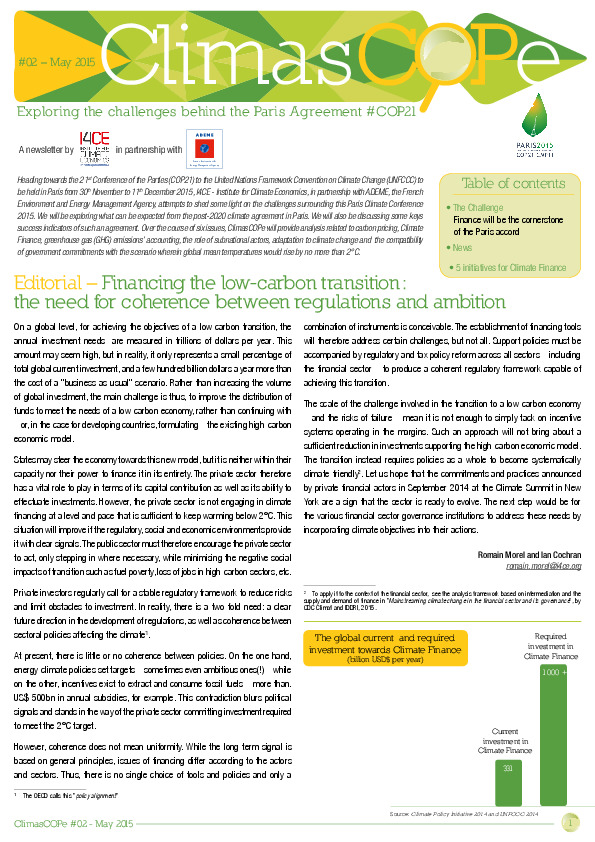Financing the low-carbon transition
Heading towards the 2015 Paris international Climate Conference (COP21), CDC Climat Research, in partnership with ADEME, the French Environment and Energy Management Agency, publishes a ClimasCOPe # 2 aiming to shed some light on the challenges of international climate negotiations.
ClimasCOPe # 2 is focused on the financing of the low-carbon transition. After an editorial titled « Financing the low-carbon transition : the need for coherence between regulations and ambition », CDC Climat Research experts analyze the issue of financing as a cornerstone in the Paris Climate 2015 agreement, last steps in international climate negotiations and key initiatives of Climate Finance developed in the world.

